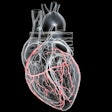Dear LabPulse.com member,
This week, regulatory clearances and approvals were a main feature of our coverage, as well as multicancer early detection blood-test presentations at the European Society for Medical Oncology (ESMO) Congress 2022 in Paris.
On Monday, Thermo Fisher Scientific announced that its Applied Biosystems QuantStudio 7 Pro Dx Real-Time PCR (RT-PCR) system meets In Vitro Medical Devices Regulation (IVDR) requirements. The system is available in all regions that recognize CE-IVD certification and is listed with the U.S. Food and Drug Administration (FDA) as a Class II medical device.
On Wednesday, the FDA granted clearance to DiaSorin for its Simplexa COVID-19 Direct kit. Catering to the expectation that there will be an ongoing need for highly sensitive COVID-19 testing in the laboratory, the molecular diagnostics kit provides a sample-to-answer test for the detection of SARS-CoV-2 directly from nasopharyngeal or nasal swab specimens.
Along similar lines, MagBio Genomics announced on Monday it had received FDA 510(k) clearance as well as the CE Mark for its MagXTract Collection Tube for COVID-19 testing.
In keeping with the theme of innovation related to blood collection, the FDA cleared the Tasso+ lancet, a blood collection tool used to collect blood samples through skin punctures, as a Class II medical device. Tasso said the device provides a simple and virtually painless blood collection experience.
ESMO 2022
At the ESMO Congress 2022 this week in Paris, multicancer early detection (MCED) blood testing, which has garnered growing acceptance across healthcare in the past year, has received a boost to its validity by way of new data that supports its accuracy. One of the latest studies reported at ESMO 2022 showed that an MCED test could detect a cancer signal in 1.4% of 6,621 people ages 50 years and over who were not known to have cancer; cancer was later confirmed in 38% of those who received a positive MCED test.
Additionally, Natera announced data for its molecular residual disease (MRD) test, Signatera, presented in four abstracts at ESMO 2022. One abstract, related to the Bellini trial, examined the potential clinical utility of circulating tumor DNA (ctDNA) in assessing the response to neoadjuvant immunotherapy in patients with early-stage (I-II) triple-negative breast cancer.
Universal Diagnostics announced the results of a proof-of-principle study at ESMO 2022, which demonstrated that the analysis of microbiome signatures in plasma can assist in the early detection of colorectal cancer.
Point-of-care testing
Regarding testing that is often done outside the laboratory, the American Association for Clinical Chemistry (AACC) on Tuesday said it has published a guide for point-of-care (POC) testing. The how-to guide is intended for non-laboratorians who are engaged in setting up a process or physical space to provide testing at or near where patient care is provided.
With an interest in the potential for POC testing, veterinary diagnostics firm Heska said Monday it is acquiring LightDeck Diagnostics, the developer of a planar waveguide fluorescence immunoassay testing system, for $38.7 million. Based in Boulder, CO, LightDeck was founded in 2009 and has developed a scalable platform for rapid point-of-care diagnostic testing for humans.
Policy news
The American Clinical Laboratory Association (ACLA) on Tuesday announced a campaign aimed at preventing cuts in Medicare and Medicaid Services (CMS) payments for laboratory testing. ACLA noted that if enacted, the Saving Access to Laboratory Services Act (SALSA) would make critical reforms to Medicare rate-setting for widely ordered laboratory services. Last week, the association and several IVD-industry organizations sent a letter urging U.S. Senate and House leaders to enact SALSA this year.
Meanwhile, the U.S. Preventive Services Task Force has released a final recommendation statement on screening for prediabetes and type 2 diabetes in children and adolescents.
Looking ahead, among other featured news, we'll provide coverage this week of a European study that found saliva was the preferred sample type for continuous SARS-CoV-2 testing.
Best wishes,



















